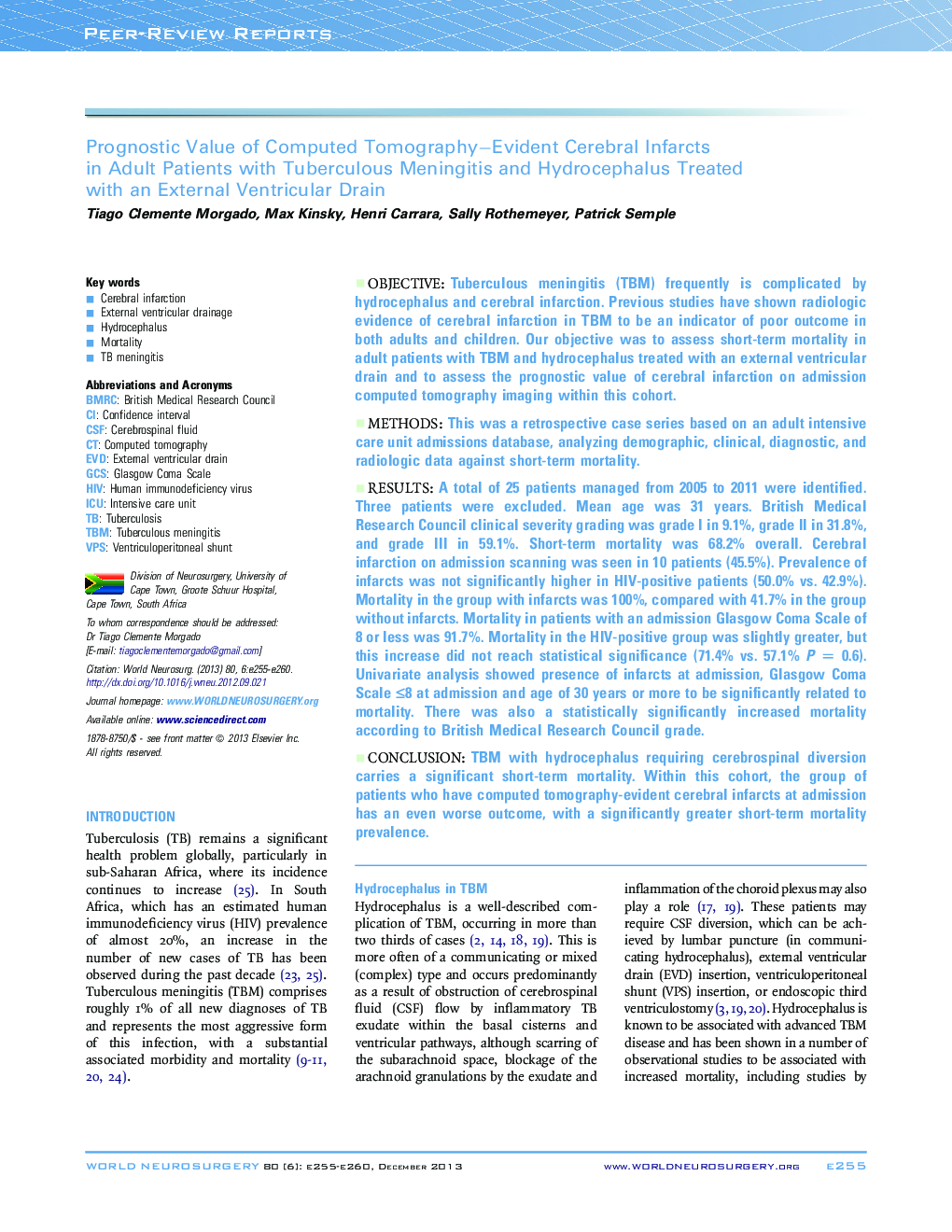| Article ID | Journal | Published Year | Pages | File Type |
|---|---|---|---|---|
| 3095844 | World Neurosurgery | 2013 | 6 Pages |
ObjectiveTuberculous meningitis (TBM) frequently is complicated by hydrocephalus and cerebral infarction. Previous studies have shown radiologic evidence of cerebral infarction in TBM to be an indicator of poor outcome in both adults and children. Our objective was to assess short-term mortality in adult patients with TBM and hydrocephalus treated with an external ventricular drain and to assess the prognostic value of cerebral infarction on admission computed tomography imaging within this cohort.MethodsThis was a retrospective case series based on an adult intensive care unit admissions database, analyzing demographic, clinical, diagnostic, and radiologic data against short-term mortality.ResultsA total of 25 patients managed from 2005 to 2011 were identified. Three patients were excluded. Mean age was 31 years. British Medical Research Council clinical severity grading was grade I in 9.1%, grade II in 31.8%, and grade III in 59.1%. Short-term mortality was 68.2% overall. Cerebral infarction on admission scanning was seen in 10 patients (45.5%). Prevalence of infarcts was not significantly higher in HIV-positive patients (50.0% vs. 42.9%). Mortality in the group with infarcts was 100%, compared with 41.7% in the group without infarcts. Mortality in patients with an admission Glasgow Coma Scale of 8 or less was 91.7%. Mortality in the HIV-positive group was slightly greater, but this increase did not reach statistical significance (71.4% vs. 57.1% P = 0.6). Univariate analysis showed presence of infarcts at admission, Glasgow Coma Scale ≤8 at admission and age of 30 years or more to be significantly related to mortality. There was also a statistically significantly increased mortality according to British Medical Research Council grade.ConclusionTBM with hydrocephalus requiring cerebrospinal diversion carries a significant short-term mortality. Within this cohort, the group of patients who have computed tomography-evident cerebral infarcts at admission has an even worse outcome, with a significantly greater short-term mortality prevalence.
